Uterine fibroids, also known as leiomyomas, are non-cancerous tumors that develop in the uterus. While they often go unnoticed, they can cause significant discomfort and complications for some women. But are they dangerous? This post will explore this question and other related topics to provide you with a thorough understanding of uterine fibroids and their management.
Are Uterine Fibroids Dangerous?
Generally, uterine fibroids are not dangerous. However, they can still cause symptoms such as excessive menstrual bleeding and anemia, bladder pressure and urinary frequency, or pelvic pain or discomfort. It's essential to monitor these symptoms and consult with a healthcare provider to ensure there are no complications.
Interventional Radiology for Fibroids
Interventional radiology offers minimally invasive treatments for fibroids, including Uterine Fibroid Embolization (UFE). UFE involves blocking the blood supply to the fibroids, causing them to shrink and die. This procedure is very effective for fibroids causing significant symptoms. UFE is performed by an interventional radiologist who uses imaging techniques to guide the treatment, ensuring precision and effectiveness. The benefits of UFE include a shorter recovery time, reduced pain, and lower risk of complications compared to traditional surgical options.
Can Uterine Fibroids Cause Weight Gain?
Uterine fibroids can cause a noticeable increase in abdominal size, which some women might mistake for weight gain. This enlargement results from the fibroids' growth rather than an actual increase in body fat. Large fibroids can make the abdomen protrude, similar to the appearance of pregnancy, which can be distressing. Managing fibroids through treatment can help alleviate this symptom, reducing the physical and emotional burden associated with fibroid-induced abdominal enlargement.
Can Uterine Fibroids Be Cancerous?
While uterine fibroids are almost always benign or non-cancerous, there is an extremely small risk that a fibroid can become cancerous. This rare condition is known as leiomyosarcoma. Regular monitoring and medical consultations are crucial to detect any changes early. It is important to note that the vast majority of fibroids are not cancerous, and the presence of fibroids does not significantly increase the risk of developing uterine cancer. However, any sudden changes in symptoms or fibroid growth should be evaluated by a healthcare professional to rule out malignancy.
Can Uterine Fibroids Cause Digestive Problems?
Yes, large fibroids can press against the bowel, leading to digestive issues such as bloating, constipation, and abdominal discomfort. This pressure can disrupt normal digestive functions, making it important to seek treatment if these symptoms occur. Fibroids located on the outer surface of the uterus, particularly those that are large, are more likely to cause these digestive issues. Addressing the fibroids through appropriate treatment can help relieve the pressure on the digestive organs and improve symptoms.
Can Uterine Fibroids Cause Constipation?
Fibroids, especially those that are large, can exert pressure on the rectum, leading to constipation. This symptom is a result of the physical obstruction caused by the fibroids, making bowel movements more difficult. Chronic constipation can lead to additional complications, such as hemorrhoids and anal fissures. Therefore, managing fibroids effectively is crucial to alleviate constipation and maintain overall digestive health.
Real-World Example
At Endovascular Consultants, we've helped many women manage their fibroid symptoms effectively. Dr. Garcia has been treating women with symptomatic fibroids for more than 25 years, performing the UFE procedure on thousands of women.
One patient, Sarah, experienced severe pelvic pain and digestive issues due to large fibroids. After undergoing UFE, she reported significant symptom relief and a better quality of life. Sarah's experience highlights the benefits of minimally invasive treatments like UFE in providing effective symptom relief without the need for major surgery.
Understanding the nature of uterine fibroids and their potential impact on your lifestyle and health is crucial. While they are generally not dangerous, staying informed and seeking appropriate treatment can help manage any symptoms effectively. Regular monitoring and consultations with a healthcare provider are essential to ensure the best outcomes.
Contact Us
If you're experiencing symptoms related to uterine fibroids, whether calcified or not, contact Endovascular Consultants today to schedule your consultation. Our expert team is here to provide you with compassionate and effective care. Call us at 302-760-9002 or visit our website to book an appointment.

